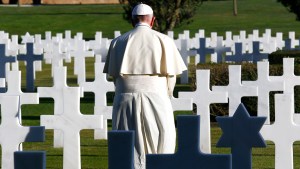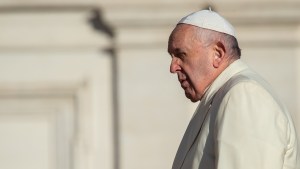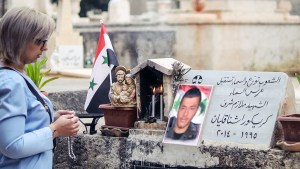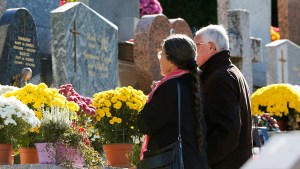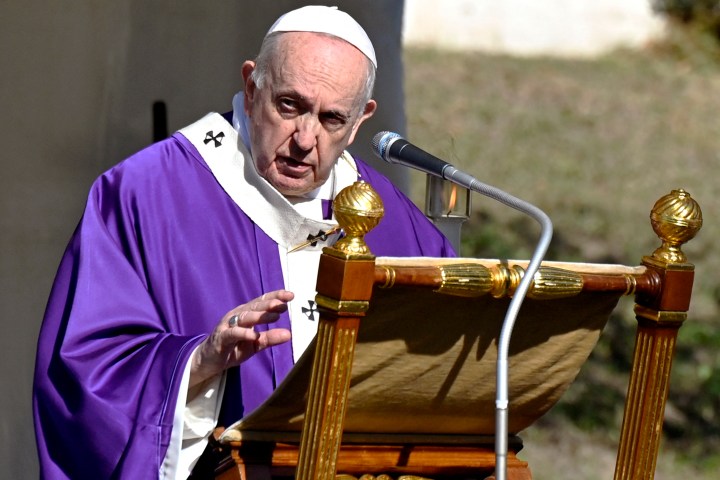
“Today, the homily should be to look at the graves,” Pope Francis said on All Souls Day, as he celebrated Mass at the French Military cemetery of Rome. His own homily was off-the-cuff.
After walking among the graves, the Pope took up a plea he has passionately made a number of times: for an end to wars. In 2017, he made a similar appeal when he celebrated the All Souls Day Mass at the American cemetery in Nettuno.
Both the French and the American cemeteries are dedicated to soldiers of World War II. Of the 1,888 soldiers buried at the French cemetery,1,142 are Muslims. The soldiers were mostly Moroccan and Algerian.
The Italian government built the cemetery as a tribute to French troops who fought against the Nazis between 1943-1944. All of the headstones carry the inscription “Died for France.”
The Holy Father’s homily denounced war as a “tragedy.”
“Today, the homily should be to look at the graves,” said the Holy Father, visibly moved, from his walk through the gravestones.“These graves are a message of peace. Stop brothers and sisters, stop! Stop, weapons manufacturers!”
“I stopped in front of a grave over there: ‘Unknown, died for France,’ in 1944,” he said. “In the heart of God, all our names are there. But this is the tragedy of war…”
Why have they died?
Citing the names of some famous battles, the Pontiff underlined that these men who died in combat had taken up arms in good will, “called by their country to defend it” and to defend ideals.
But so many other times, he lamented, wars are about defending “sad and lamentable political situations and they are the victims, the victims of the war which eats the children of the motherland.”
The Pope reflected that these men “are with the Lord.”
“But we, who are marching still on the journey, are we fighting hard enough so that there are no more wars? So that there are no more economies of nations built up by the arms industry?”
The Pope invited the world to look at these tombs “which speak out, which cry out for themselves, which cry for peace.”
Before Mass, concelebrated by six French priests, the Bishop of Rome walked for a few minutes alone through the cemetery. He placed white roses on some of the graves, notably on the grave of an unknown soldier who died for France in 1944.
